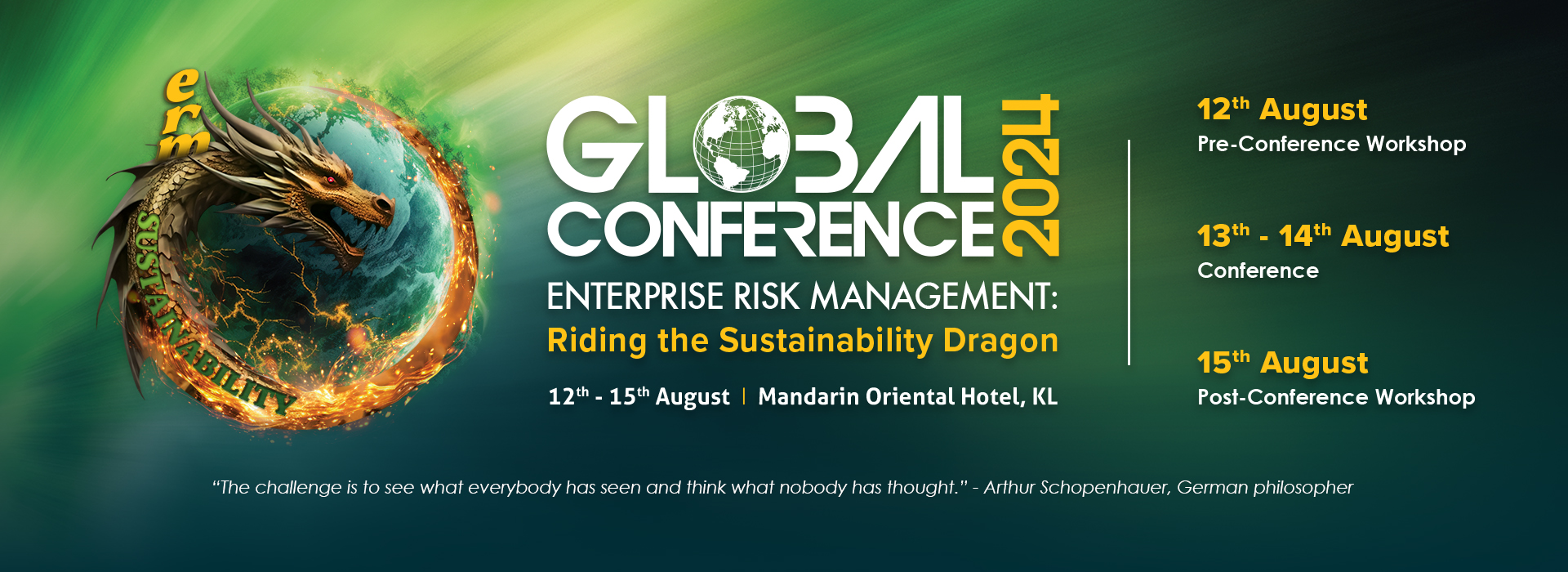Pre-Conference, 12thAugust, Monday
Masterclass : Establishing effective GRC (Governance, Risk and Compliance) practices to drive Strategy, Performance and Sustainability
by Ramesh Pillai, GMD Friday Concepts
Good governance, risk management and compliance (GRC) practices are essential to strengthen the resilience of businesses and trust in organisations. GRC is the integrated collection of capabilities that enable an organization to reliably achieve objectives, address uncertainty, and act with integrity. Over $1 trillion (USD) is destroyed every year because of unprincipled misconduct, mistakes, and miscalculations. Organizations, individuals, and the public count on GRC processes to lead the way and solve this trillion-dollar problem.
Organizations must address today’s challenging business climate. Even small businesses, non-profits, and government agencies are facing issues that only large companies had to face in the past. Many common factors that businesses face become the true drivers of GRC and its value throughout the business:
- Stakeholders demand high performance along with high levels of transparency
- Regulations and enforcement are ever-changing and unpredictable
- The exponential growth of third-party relationships and risk is a management challenge
- The costs of addressing risks and requirements are spinning out of control
- The harsh (and scary) impact when threats and opportunities are not identified
A disorganized approach to GRC can slow down an organization and cost more — all while achieving less, missing requisite compliance requirements and misidentifying threats to your revenue or reputation and missing opportunities. Many organizations approach GRC by constructing overly complex and specialized programs in risk management, performance management, compliance, internal auditing and corporate social responsibility. The danger in this is creating too many disconnected silos that slow down communication, limit access to critical information and duplicate activities due to a lack of transparency and knowledge across the organization.
Too often, organizations believe that buying a single GRC system or forming a specialized department will help resolve all of their GRC-related concerns. However, a robust GRC strategy is about more than a specific tool or set of roles. The best GRC strategy may be invisible. The end goal is that your selected tools, technologies and processes become “baked into” the fabric of your organization – so that any GRC standards and practices become a natural part of doing business. GRC practices are built in view of corporate strategies rather than in isolation. When a company’s business strategies and GRC are well-integrated with one another, it reinforces confidence in the organisation in the marketplace and wider community.
Scroll down and fill in the form to get full conference brochure.
Scroll down and fill in the form to get full conference brochure.
Post-Conference, 15th August, Thursday
Masterclass : Managing NFR (Non-Financial Risks)as a driver for organisational performance
by Ramesh Pillai, GMD Friday Concepts
The increasing complexity of the business environment, heightened stakeholder expectations, regulatory changes, and the interconnectedness of global issues have collectively elevated the importance of managing NFR.
Managing NFR is crucial for protecting an organization’s reputation, ensuring compliance, making informed decisions, and building a resilient and sustainable business. It is an integral part of overall risk management and corporate governance practices.
This interactive learning experience explores the many challenges that risk professionals encounter when dealing with the broad spectrum of non-financial risks. Throughout the course, participants will assess their organisations’ abilities to manage non-financial risks, while gaining insights into effective management of NFR as an integral part of organizational performance and long-term success.






































